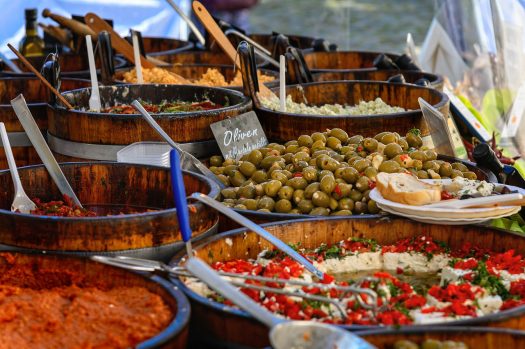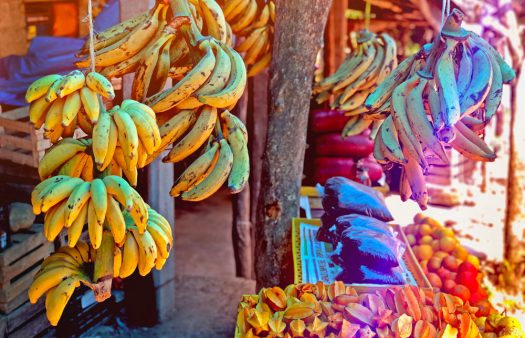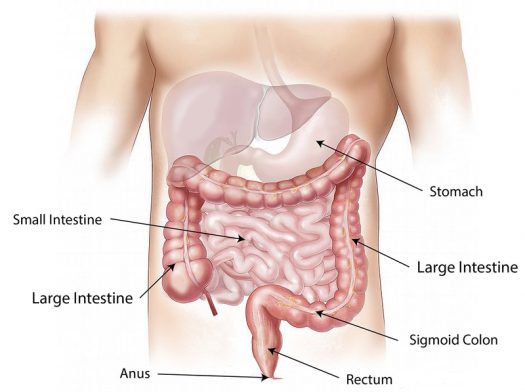Healing IBS, Colitis and other digestive disorders naturally.
If your bowels are not moving, you’re dying!
Excuse my crudeness. But let’s not dance around this. Digestive problems are exhausting and worse it feels like the various digestive disorders that drag us down made out to be mystical and incurable ailments by people who simply have nothing to sell us for them. The problem is the same at it’s core. The bowels must function or the rest of the body will cease to. The solution is to not simply get the bowels moving, we want to heal them. So this is NOT a top ten list scoured from the internet to get views. This is a paper that’s come from years of research and that will grow over time.
YES it can be THAT simple! Society has taught us to move heaven, earth, and our bank account to do what doctors say, even as we dismiss nature’s benefits with a frustrated “it’s not that simple” and go buy pills.
Sure there are lots of vague rumors about natural healing and it can be frustrating when the internet says everything or nothing is a solution. But whether you’re that trucker at the rest stop, or someone suffering from chronic conditions like IBS, the bowels must move! So take a breath and let’s apply some natural healing from centuries of herbalists and their experience.
 Digestive illness is curable and while we give many names to digestive related issues from GERD to Crohn’s, they are all linked together in many ways. Today we’ll look at tools to treat all of them. Most are not so far apart.
Digestive illness is curable and while we give many names to digestive related issues from GERD to Crohn’s, they are all linked together in many ways. Today we’ll look at tools to treat all of them. Most are not so far apart.
Digestive issues run in my family and often felt like doctors lack solutions because they do. In fact, in the USA more than 10% of the population has IBS. It’s big money for the medical industry. Despite the good intentions of many doctors, the system offers little in the way of healing. because the dirty truth about modern medicine is that if they don’t have surgery or pill to sell, things grind to a halt. You keep paying for visits, but you get no long term relief. It’s owning a car that keeps breaking and the mechanic does not fix it, charges you anyways and you come back soon.
First let’s remember the fundamental recommendation that doctors, mothers, and naturalists alike. Exercise, the time you eat, chewing your food (30 times is good), going for a walk after dinner, working in the garden, etc. These are, in my experience, critical for those suffering digestive issues. Get your body moving. No excuses. I have seen digestive problems lessen dramatically, including in myself, yes going for a walk or a jog after dinner can make a huge difference. There can be little question that activity and exercise help nearly every aspect of digestive health. While everyone cannot exercise at the same rate, even an after-meal walk can offer a lot of help. You body needs to move.
But what if it’s really bad?
The belief that a disease is incurable is mostly an excuse. It’s corporate-speak for “we have nothing to sell you. Forgive my negativity. I know western medicine can do some amazing things at times. Sadly it’s become driven by corporate greed and when greed enters, solutions that cost next to nothing are replaced by complex and grand pretenses that something that was treatable long before western medicine existed, is not incurable.
I’ve been studying herbs for about 8 years now, studying what works from people with far more experience. My studies have been broad but heavily weighted towards the nerves and digestion which are close cousins. Some become skeptical because the same herb is often prescribed for different conditions. For example, many of the herbs I will talk about today are valuable tools for a general digestive upset as well as more complex conditions such as Chrones and IBS. We have to remember nature’s medicines are more complex and broad-spectrum than the concentrated chemicals we are sold at the pharmacy. While we often need to use more of the healing herb, it carries vastly more chemical compounds and that are natural and meant to be used by our bodies.
Relief Today!
Healing should always be the goal and I believe this is a fundamental problem with our medical industry. But it’s hard to be inspired when you’re in pain, doubled over or sitting on a toilet. I know because every time I get sick, I know it’s time for me to try things and use myself as a test subject. You’re frustrated, especially if this has been going on a long time. Everything seems to be compounding and you feel like you’re dying, you can’t sleep and you hurt. I understand. I’ve been there.
Drugs provide little relief because they don’t address the problem. Stress, diet, and healing the damage. Digestion is about food. We’re going to talk about the best tools I’ve found after years of study and I believe they can provide relief that may come faster than you think. But if you’re reading this and need help now let’s talk about things to get your digestion working better, your cramps eased and you pain lessened TODAY o you can focus on long term healing.
Start NOW with Digestive foods.
 In the era of processed, pasteurized and capsule drugs, we tend to ignore the foods that help digestion in a radical way. We want things easy, we want directions on the bottle, but our bodies are more complex than that. For nearly all bowel conditions, my studies have taught me that active foods are powerful. During flareup, I will often experience stomach cramping, bloated feeling, a sense of needing to evacuate, and not being able to, only to be followed by liquid stool. Gross. Lng-term healing herbs are important and we’ll review those soon, but you can often get relief from suffering, sometimes in minutes, by giving your body the foods it is demanding.
In the era of processed, pasteurized and capsule drugs, we tend to ignore the foods that help digestion in a radical way. We want things easy, we want directions on the bottle, but our bodies are more complex than that. For nearly all bowel conditions, my studies have taught me that active foods are powerful. During flareup, I will often experience stomach cramping, bloated feeling, a sense of needing to evacuate, and not being able to, only to be followed by liquid stool. Gross. Lng-term healing herbs are important and we’ll review those soon, but you can often get relief from suffering, sometimes in minutes, by giving your body the foods it is demanding.
Probiotics: Yes you can buy probiotic capsules and those can be good to have around. but again those are isolating an active compound rather than using the complete healing of real natural foods. Kombucha, Water and perhaps Milk Kefir (very powerful) and other active probiotic drinks such as Mexican Tepache do help return our system to the naturally preserved, living foods that kept our grandparent’s systems thriving long before refrigeration. Start small if you need to. But get yourself some raw Kombucha, make some Kefir or try some active Greek yogurt (start slow if you think dairy might affect you negatively). These are better than any probiotic capsule.
Sauerkraut: The real thing, it’s easy to make at home if you can’t find it. A lot of people reject sauerkraut who have IBS because cabbage is often cited as a trouble maker. Even with a healthy stomach, if you eat too much cabbage of cauliflower will often feel bloated and gassy. They are very active vegetables. During the fermentation process, that gassy bloat is turned into a natural probiotic fermentation and for many, it’s amazing and provides fast relief.
Perhaps more than all other foods, a bowl of good active sauerkraut will settle my upset stomach. I can get some relief from commercial sauerkraut at the store, but a raw fresh kraut is best. Here’s a great video on making your own if you don’t have a quality source. Don’t stop there either. You can add other veggies such as carrots into you diet in the same probiotic fashion by fermenting them in that same sauerkraut base. True fermented sauerkraut, Kimichi, and related foods are tools you won’t get it a pill.
Miso: Miso soup is another fermented base food full of good natural healthy bacteria for digestion. You can usually get a Miso base at the Asian market and you can make it in various soups or just take the broth if you’re having a rough day. I remember a while back I had some dental work done and I made the mistake of taking commercial antibiotics instead of natural ones. Within a day my gut problems flared. Miso helped me quickly restore the gut balance I used it with probiotic drinks to stabilize in just a few days.
 Fresh Fruits and beyond
Fresh Fruits and beyond
They may be the best tasting of all medicines and should be considered especially important to people whose situation is such that eating itself is a painful chore. A bowl of fruit and work wonders.
Papaya: Get the real thing, not the capsules. It’s a soft, easy to digest food that comes with fast and natural stomach-settling properties from its papain enzyme. Papaya juice can ease heartburn fast and is often used in pregnancy. It can settle the digestive system and ease cramping. In Latin culture it’s a staple, but because it’s less common in Western cultures some are put off by the slightly peppery sweetness found in the seeds (which can actually be dried and used instead of pepper and are valuable in the treatment if digestive parasites). The taste grows on you, though. if you don’t like it, try it chilled as it softens the flavor.
Mango: It’s a little bit more intense, though the flavor is often more popular. I find papaya to be more gentle, but mango also tends to have a settling effect. Combining with papayas and other fruits in a smoothie is a great way to use them.
Banana: Another gentle food, in spite of the fear will make your stool too firm. Really, that is not in moderation. Use ripe bananas where the fiber is softer. Mix them with other fruits and if you are worried about constipation, start slow. In reality, the added gentle fruit and fiber will likely allow the stool flow more naturally. The truth is that constipation and what we call diarrhea are often the same. Only the liquids are passing so we feel not only bloated and clogged but also diarrhetic. These are not a contradiction and the body needs easy flowing solids to restore healthy stool.
Fruits such as figs and prunes may not have the instant calming effect of papaya but add healthy fiber and are easy to digest. In a constipation emergency, a glass of prune juice will free up the bowel rapidly. I tend to avoid this when I can as allowing the natural progression of the bowels is less harsh on the system and frankly I don’t like prune juice. When possible I recommend eating the whole fruits by themselves or in a smoothy to gradually reap their digestive benefits while feeding yourself as well.
Other fruits can also help and continue to demonstrate the great value of fruit as medicine. Pineapple can have a settling effect though it’s more acidic so start in moderation or mix with other fruits. If available, the Honey Pineapple, a smaller cousin of the large commercial varieties we are used to is a more gentle fruit with similar properties. Prickly pear fruit eaten with the whole seeds is easy to digest and the roughage from the seeds helps clean your system. Fresh Passionfruit also seems to have a settling effect in my own experiences.
Gheee: Oil can help smooth things down south, but it can also cause irritation. Ghee is useful for this and also tastes good. Is a refined butter that has been cooked to separate the lactose parts and leave the grease. I’ll sometimes use coconut oil as it’s gentle and loved by many, though ghee has more nutrients and is known to be useful in treating digestive disorders. Give it a try.
Aloe Vera Juice: This can be taken internally or externally and is known to be effective are promoting gut flora as well as combating bad bacteria as well as with inflammation of the gut, PH balance and nutrient absorption. There’s a video on making the juice here. Prickly Pear leaves, (Nopales) are another foundation of Latin diets that help as well. These foods that have a slimy texture help coat the linings of the stomach and intestines and can provide relief while they heal.
Apple Cider Vinegar: Another popular tool for digestive upset, a Tablespoon or two in a glass of water can help regulate your digestive system along with the other procedures we’ll look at today.
Fiber: This is often overlooked. If you’re moving slow and feel bloated but al has liquid evacuations you are almost certainly constipated. Fiber helps with this. Both types.
- Soluble fiber (like oatmeal, avocado, black beans, figs, apples, flax seeds (I eat a handful of these when my digestion is wrong) and many others provide are the fiber that absorbs water to help move things thru faster (it’s the real food version of Magneseim constipation supplements). You can also give a laxative boost with Magnesium-rich foods like dark chocolate or pumpkin seeds. yes eat a few ounces and you will be moving the next morning. But don’t simply rely on constipation aides. Heal yourself.
- Insoluble fiber like nuts, whole grains, celery, carrots, nuts, and seeds are the fiber that provides mass and regulatory and balance. If you’re really not moving you have favor towards soluble fibers but in general, a balance is ideal. Soothing foods and probiotics will improve digestion, herbs can heal ulcers and long term damage. But a good fiber balance along with exercise keeps your stool moving.
Your system needs to get moving. EAT! Some of these may work better than others for you, but something here will work. Fruits, active foods and good chewing will goal a long way to quickly improving your digestion. Eat foods that will help you get your strength back. It’s not about one food and you’ll need to listen to your body, cut the heavy meats, white bread, and junk and give your body real food to get it balanced again.
Now we can start looking at long term healing and relief.
Essential Oil Tummy Rub:
Apple Cider vinegar.
This is one of my own formulas. I don’t consider it a long-term cure so much as a way to help with relief for now. Whether it’s cramped from IBS, a child’s upset tummy, or a bout of nausea, I find this formula does provide some relief fast. Essential oils are powerful tools and I’m always researching them. I usually use them externally, like this oil mixed with a carrier such as a coconut at a concentration of about 5%. Many people take oils internally and I’m not saying that’s bad, but essential oils are strong, and taking things into the stomach when it’s at it’s worst may not always be the best idea. This is a combination of herbs that smells and feels good and is targeted to soak in and ease the pain in the abdominal area.
My Basic V2 formula uses.
- 1p peppermint
- 1p clove
- 1p ginger
- 1p fennel
Extra Strength version for all kinds of stomach upset.
- 2p Oregano
- 1p Clove
- 1P Fennel
- 1P peppermint
- 1p Cinnamon Bark
- 1p Ginger

The long term natural treatment.
You should have good bowler evacuations without pain 2-3 times per day. If you’re not, you should start treatment like the one below. Lots of digestive sufferers have learned at least some of the foods that work for them. But where we lack is in long term healing and restoration. You can start these treatments at the same time as you refund your diet and foods and together they should not only help bring relief but a long-term improvement. I believe treatment should be similar for most digestive problems but let’s talk about a few specifics to your condition.
Crohn’s and Ulcerative colitis:
These digestive conditions are attributed to inflammation of the intestines. Foods irritate the digestive system, constipation is often present and bowel movements are poor. Crohn’s also suggests an immune condition, likely an overactive immune system caused by bacteria or virus. While herbs that ease the digestive system will provide help, I would recommend a course that addresses the root cause as well inlsui9ng diet, stress and healing the intestines as we will talk bout below.
Turmeric herb: Ultra expensive and dangerous TNF blockers like Humira are often sold to regulate the immune overreaction in colitis. But besides being one of the world’s most powerful anti-inflammatories (based on clinical study) The curcumin content of Tumeric has also been shown to be a TNF inhibitor like these expensive drugs. It’s often mixed with piperine (black pepper) to help it move past the digestive wall better. However, with digestive issues it comes are in direct contact with the digestive walls and should work very quickly either way.
More isolated and stronger Curcumin concentrates are also sold commercially, though I generally like using the herbs in their simple forms because isolating one part or another of a valuable herb leaves behind the powerful compounds that are lesser-known and may balance or empower the effectiveness of that herb. In short, herbs have MANY chemical compounds which are one thing that makes them so effective, even when the diagnosis may not be fully understood. It’s safe and you can take it by the spoonful or capsules.
Extra sensitive digestive tract and ulcer make this condition worse. Look for a regime of plants and herbs that coat and soothe these internal sores such as marshmallow root, slippery elm bark, ginger, or wild yam. These can help ease the discomfort so long-term healing can be applied as we’ll discuss below.
Immune response herbs: Herbs that balance an over-active immune system should be considered with these conditions along with those that reduce inflammation and aide in general digestion (more on those below). For immune response, the combination of Marshmallow root and Astragalus root as Recommended for many years by Dr. John Christopher, is helpful here. I use them in equal parts powdered, in capsules. These can be made at home easily, though for those who want to purchase it the combination is sold by Dr Christopher’s herb shop here.
These herbs focusing on balancing the immune response. Like many herbs, they should be effective in either over or under-active situations. Other herbs may be a benefit in these areas, though the over-active stimulation associated with Crohn’s, UC, and IBS are well served by these herbs.
Irritable Bowel Syndrome:
IBS, ongoing irritation in the large intestine if often triggered by food. Many sufferers of IBS eat a very limited diet and while there are commonalities, the food that ruins the day of one not in another. But the discomfort is usually a result of constipation and bowel movement problems not the food itself. meaning it’s not the same as being allergic to chocolate or milk.
Overall IBS should be treated much like Crohn’s. And the emphasis on whole foods that produce digestion and relation to the stomach. Then by application of dried or concentrated herbs that heal, reduce inflation or provide natural bowel movement.
In IBS however, we should look to the nerves. You may have heard that the bowels are misfiring. Moving the digested food through too fast, too slow or erratically. IBS flareups are often connected to stress and anxiety and the nerves not telling the bowels to move consistently. I have noticed that more high strung, nervous or stressed people tend to suffer more from IBS. I struggle with the symptoms of IBS and it’s often connected to my own stress which can often be connected to my personality, my drive to push myself, and the way it affects my mind.
Nerves are not imaginary. They can be damaged by stress and they can see healing not only through mental and spiritual peace but practically speaking using that effect the nerves. My favorite of all these is Skullcap. It’s a long term herb that can be taken in formulas, teas, tinctures without side effects. It eases symptoms, helps with sleep and heals the nerves throughout the body.
Skullcap is used in many powerful formulas and should be considered a foundation in Crohn’s and IBS. It can be taken straight but generally, is best used with a good nerve formula. First continuing with feeling better TODAY I will make the following tea as a general relaxant and aide for restful sleep.
The herbal regime…
An ongoing nerve healing formula that adds other herbs like Vervain and Lobelia should be considered. My favorite is another of Dr. Christopher’s combinations and can be taken long term to heal the nervous system. I recommend 2-5 capsules per day. the formula is below but this can also be purchased online under the name Relax Eze . Note that I have no businesses associated with the makers of these. Personally, I buy in bulk from a store like Penn Herb I mix formulas at home but if you need a supply soon and easy there’s nothing wrong with buying them. I made it as follows.
Nerve Heal formula (Relax Eze)
- 1p Black Cohash
- 1p Cayenne
- 1 p Hops
- 1p Lobelia
- 1p Valerian
- 1p Wood Betony
- 1p Misletoe
Note that Black Cohash is often counter-indicated with pregnancy. If pregnant you may want to omit it, or exchange with an additional part skullcap. As you move forward, but by all means research to validate each of these herbs to check my studies.
This simple tea is a lovely companion to the above formula. While it does not replace the nerve formula, I find it’s a great way to settle the stomach, ease the nerves and get better rest.
Tea de La Paz
- 1P Skullcap (for the nerves)
- 1P Valerian (for better sleep and relaxation)
- 1P Chamomile (for calming and as a gentle stomach tonic)
- 1P peppermint (for calming and settling the stomach)
Long term bowel repair formula.
Next and perhaps the most important aide in poorly functioning bowels of all kinds is to feed them the herbs that heal the bowel. Whether it’s ulcers, or Crohn’s, or IBS, the condition of the bowel has been degraded. The lower bowel formula is strong not only for loosening then bowels from constipation, but healing them and restoring natural function. This is important and often neglected in bowel conditions.
If we find the few foods that we can digest and simply restrict our diet without restoration, we cease to exercise the bowels. The goal is not simply to get the bowels working on a tolerable level, but, much like with the nerves, to restore diet and life. The healing of the condition is our end game and we don’t nee to wait for doctors to develop a market method. We already have a natural one. While some of us may always be more susceptible to these conditions than others, it is a fallacy to say they cannot be cured.
The bowel formula contains the following.
- 1p Barberry Bark
- 2p Cascara Sagrada
- 1p Cayenne
- 1p Ginger
- 1p Lobelia
- 1p Red Rasberry
- 1p Turkey Rhubarb
- 1p Fennel
- 1p Goldenseal
This formula has been used for a long time and you can read more about it here. It can be taken in quantity. Those with severe conditions can start slowly, but the goal should quickly be 10 or more 00 capsules per day. Dr. Christopher reported patients taking up to 40 per day that had intense blockage issues. In my experience, herbal formulas sometimes scare people and lead them to take tiny amounts of the wrong herbs and get little relief. They believe they cannot take cayenne or they take a few of these and get a heartburn-like sensation likely caused by the cayenne or the Turkey Rhubarb. While you can modify the formulas, I don’t recommend it unless you have the knowledge to know why and what you can change them with.
In most cases an problems with Bowel formula can be resolved by simply taking it before you eat. For example, if I take only one capsule on an empty stomach I will feel the herbs and get slightly uncomfortable. If I take them with food, even a bowl of fruit, I can take 3 or 5 at a time and not feel a thing. Learn how to best apply the correct foods for your body and your stage of healing but don’t ignore them because you are afraid. Again I try to take at least 10 capsules a day when I am working to heal my system. More if needed. Over time I may taper off as my system starts to behave normally.
Finally When major digestive condition is present don’t limit your scope. Consider the gall bladder and the pancreas and whether your condition could be affected by them. The beauty of herbs and natural medicines is that if one course of herbs seems to not be effective you can expand the diagnosis into herbs for other related conditions, after research, without great fear of wild side effects or interactions.
The biggest mistake people make with herbs!
NOT enough of them. Plants are simply food. Some taste pleasing, others do not. Some are powdered or made into tinctures for better absorption or application. But few have side effects and most have no risk of overdose. In my experience pharmaceutical medicine almost never treats the condition. It simply provides a little relief. Herbs are sometimes not as strong at relief but heal rather than hide. The biggest mistake I see in their use, is lack of use. When a doctor prescribed three pills a day people take those pills religiously because we have been taught to trust the trained professional.
But when an herbalist says take this formula for the bowel a person might take a few drops or a few capsules for a few days only and give up because they don’t have a label telling them it will be ok. If a medication causes side effects, the doctor may say they are minor and the patient will tolerate them in hope of broader relief. If the herbs cause a small stomach upset the patient may dismiss them saying ” they make me feel worse”. Herbs are food, but they are also medicine and need to be used as such. If the fruit of the papaya helps the digestion you don’t consume a gram, you take a bowl.
Health stores will often sell tiny bottles on tinctures like rare minerals meant to be used drop by drop. With a few herbs like lobelia, which is an emetic in large doses, drops should be used. But with most herbs teaspoons and tablespoons should be dosed. These are not concentrated artificial products meant to sell high and work instantly. These are God and nature’s medicines and while care should be taken, use should be prolific when applied correctly. When you have a bowel constriction, breaking it free and restoring the bowels may take time, healing, and even some discomfort. Just like when you break a bone and you know that time, therapy and patience is required. There is hope and you can find the solution for you.
I hope this broad look at digestive healing helps and I’ll break it off into more specific topics and or video on the future if people need it.
Gavin Seim

